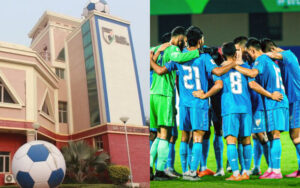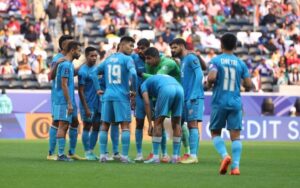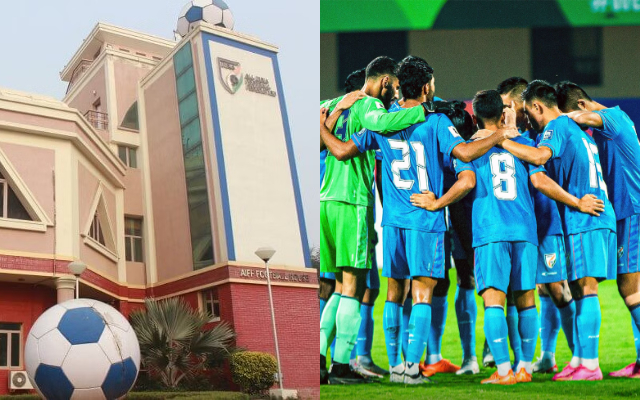
The All India Football Federation (AIFF) will host an awards function at a premier hotel in Delhi this evening (July 19). It’s supposed to be a blue riband event, aimed at uplifting the image of the game in India and reward the best players, in several categories. Not an annual fixture despite being first held in 2016, it’s an occasion to celebrate Indian football.
But, what is there to celebrate and who are the ones to be presented the awards? Indian football has flattered to deceive in the last year in almost every age-group, the most notable being the senior men’s team’s failure to qualify for the third round of the FIFA World Cup qualifiers from an advantageous position in the group. The anti-climactic setbacks included a defeat at home against a second-string Afghanistan side. The controversial sacking of coach Igor Stimac created further negative publicity.
Practically speaking, this is time to introspect for Indian football, not celebrate. If they do the second, it will be encouraging mediocrity and ineptitude rather than excellence. The senior team hardly ever scores a goal. In nine matches in the Asian Cup and World Cup qualifiers, they netted thrice and conceded 13 times. India’s most prolific striker ever, Sunil Chhetri, has retired from international football and there is no goal-getter in sight. Yet, it’s time to celebrate.
For the Latest Sports News: Click Here

This being an Olympic year and looking at history, things were not always this gloomy. A country starved of medals other than those won in hockey until recently, fourth-place finish was a matter of pride for India. Wrestler KD Jadhav had won a bronze in 1952, but more than his historic feat, we glossed over Milkha Singh and PT Usha, who came fourth in 1960 and 1984, respectively. They were our legends. For years, India celebrated them until Leander Paes broke the barren spell in 1996 by securing an individual bronze medal in tennis. Performance in other disciplines has improved leaps and bound since, although not at a rapid pace.
Talking about the nostalgic appeal of fourth-place finishes, which Indian team was the first to finish in that position at the Olympics? It was football in 1956 in Melbourne. Coached by Syed Abdul Rahim and led by Samar Banerjee, the team had beaten Australia 4-2 to reach the semi-finals. They failed to qualify from the group stage four years later in Rome despite holding France to a draw (even though the recent movie Maidaan showed India had won that game). That was Indian football’s last Olympic sojourn. But a draw against France, who had played the World Cup semi-finals in 1958, was creditable nonetheless.
As another edition of the Olympic Games comes close, Indian football continues to remain in the pits it had plunged into long ago. The last decade or so has seen the advent of the Indian Super League, efforts to commercialise the game and market it according to modern demands. The profile of Indian footballers has changed and so has their awareness on several fronts, including fitness and diet. Many foreign coaches and support staff have worked with them.
But the result has remained zero as far as the national team is concerned. The AIFF continues to be run unprofessionally — the messy contract fisticuff with Stimac being an example — and the future remains as uncertain as it was. There have only been sparks of encouragement and nothing to look forward to in the real sense of the term. And yet, this is the time to celebrate and hold an awards night. If this is an occasion to cherish, then the standards being set are low indeed.
Also Read: The mystery of Norman Pritchard, India’s ‘first’ Olympic medal winner




